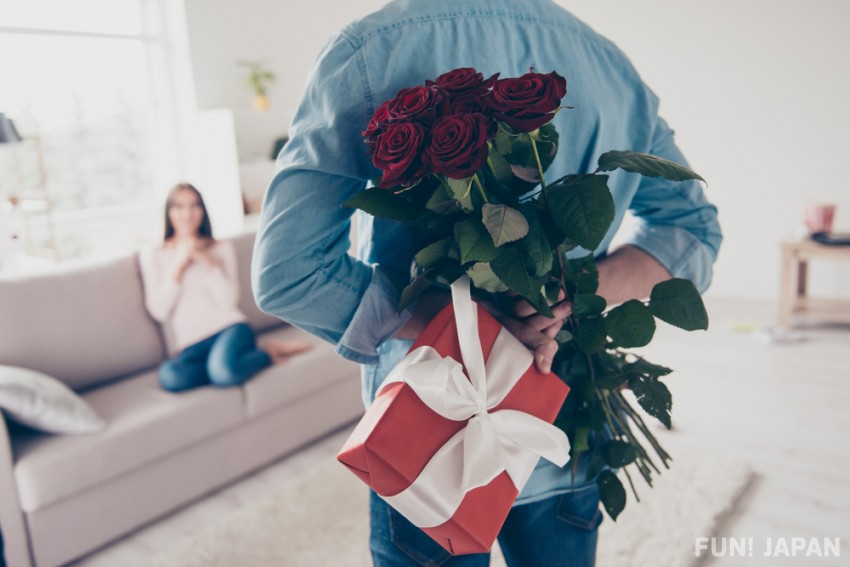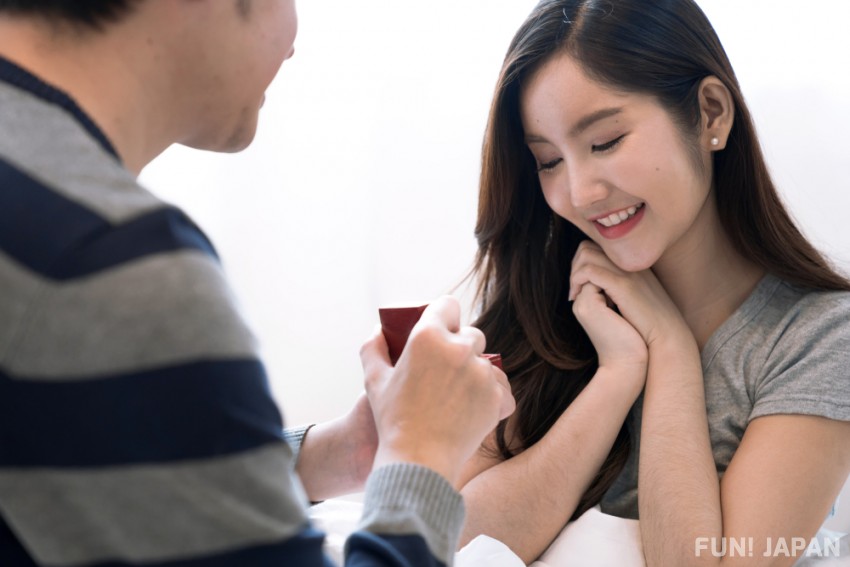
Oddly, in Japan, only ladies are supposed to offer something when February 14th comes. Usually a box of chocolate. One might think that this difference is unfair toward the poor girls who have to make the unilateral effort. But wait, Japan has found a solution to bring about balance. One month later (March 14th), men need to return the favor to that special someone who made the first move.
Origin

Apparently, the idea of returning a gift a month later came from a Japanese company that specialized in marshmallow production. Explaining why originally, this habit was called “Marshmallow Day”. March … Marshmallow… do you get it?
Well, that obviously sounds like a shameless marketing plan, but who cares, as long as we get to eat sweets!
The concept was extended to other confectionery-making companies and applied to a wider range of consumer goods. Giving birth to the appellation “White Day”. “White” refers to the color of sugar, the main ingredient for our well-loved candies.
What’s the rule then?

Well, for the lucky ones who earn favor from many ladies, the rule is simple: they have to give back to each aspirant a present that’s worth three times the one that they received. In Japanese, it is called “Sanbaigaeshi”, “三倍返し”.

In fact, since the price isn’t necessarily obvious, men can buy whatever they decide to. Generally, the ones intended for friends or colleagues are small things, like a key holder, a mug or a what’s called a friendly chocolate “tomochoko”, “友チョコ”.

However, if you are fortunate enough to get homemade chocolate, “honmei choko 本命チョコ” it can cost much more (jewelry, clothes, lingerie, etc). This applies when the recipient is the object of affection. It’s quite clear which of the sexes has the disadvantage in this exchange, am I right guys?!
The “okaeshi お返し” custom

In Japan, according to tradition, if someone offers you a present you must give in return the same favor. This practice is found in many celebrations such as weddings, New Year's eve, and even funerals. For the wedding ceremony in particular, it is common to bring a monetary gift (about 30 000 yen). It’ll serve as a sort of “entrance fee” and will be refunded partially through the “okaeshi”. Another example is “omiyage”, or souvenirs. In companies, when someone leaves for holidays, they are expected to bring back a local food or any other small gift in order to somewhat mark the occasion. Breaching this obligation would be perceived as a rude gesture. So we definitely can consider that there is a real enthusiasm around this giving-gift culture.
Above all, it is an effective gimmick to confess your love in a relatively subtle way or just show your affection to someone. In an aging society such as Japan, this celebration may act as an icebreaker for young people, so why not give it a try? Plus, even though for some guys this habit became a “must-do”, many others choose not to yield to this obligation.
This new habit is not limited to the Japanese archipelago, Taiwan, China, and Korea have also been caught up in this phenomenon. Korea has even created another event on April 14th, for singles. They called it “Black Day”!

Comments